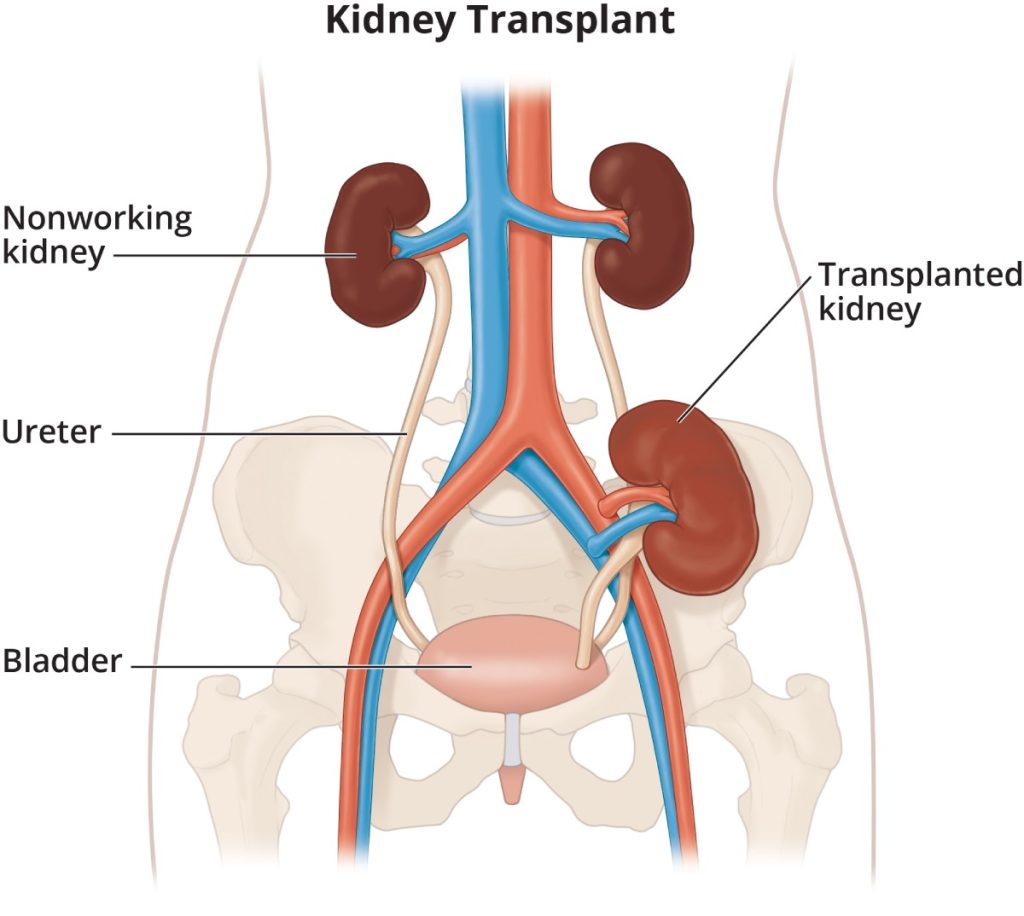Introduction
If you or a loved one is thinking about getting a kidney transplant in India, one of your main concerns is the expense. Although medical bills might be daunting, knowing how kidney transplant prices are broken down can help you make better plans.
To make sure you’re ready for this life-saving procedure, let’s go over everything you need to know in detail, from surgery fees to post-transplant expenses.
Why Choose India for a Kidney Transplant?

India has emerged as a top kidney transplant destination because of its top-notch medical facilities, highly qualified doctors, and reasonably priced treatment alternatives in comparison to Western nations.
India provides high-quality kidney transplant treatments at a fraction of the price you would spend in the US or Europe, regardless of whether you are an overseas patient or an Indian resident.
How Much Does a Kidney Transplant Cost in India?
The hospital, the city, and the case’s complexity are some of the variables that affect kidney transplant costs in India. In India, the typical cost of a kidney transplant price in India ranges from ₹5 lakh to ₹15 lakh Rupees. Let’s dissect this in more detail.
Pre-Transplant Expenses
To make sure you are healthy enough for the process, you will need to undergo a number of examinations and tests prior to the actual transplant. These consist of:
Cross-matching, tissue typing, and blood tests: ₹50,000 to ₹1,00,000
Expert visits and consultation fees: ₹10,000 to ₹30,000
Initial examinations and hospitalization: ₹20,000 to ₹50,000
Surgical costs
The majority of the costs are associated with the actual kidney transplant process. The procedure will cost between ₹4 lakh to ₹12 lakh in total. This comprises:
- The cost of the surgery
- Operating room fees
- Fees for anesthesia and medical staff
- Making use of advanced surgical instruments
Hospital Stay and Recovery
Both the donor and the recipient require hospital care after surgery. Depending on hospital standards and length of stay, hospitalization charges for both can range from ₹1 lakh to ₹3 lakh.
Post-Transplant Medications and Monitoring
Post-surgery care is one of the most important aspects of a kidney transplant. To avoid organ rejection, the patient must take immunosuppressive drugs for the rest of their lives, which can cost anywhere from ₹10,000 to ₹30,000 a month. The annual cost of standard testing, follow-up consultations, and additional prescription drugs ranges from ₹50,000 to ₹1 lakh.
Factors that affect Kidney Transplant costs
A kidney transplant’s price in India is determined by a number of factors:
- Hospital and city: Compared to smaller cities, treatment prices are higher in metro areas like Delhi, Mumbai, Chennai, and Bangalore.
- Hospital type: Private hospitals are more expensive than public ones.
- Donor type: Compared to cadaveric (dead donor) transplants, living donor transplants typically have lower costs.
- Medical issues: Any issues that arise during or following surgery may raise expenses.
Beyond the Surgery – Ensuring a Healthy Living & Recovery
A kidney transplant is only the beginning of a lifelong dedication to health. Following surgery, maintaining kidney function and general health requires periodic follow-ups, medication, and lifestyle changes.
- Immunosuppressive Medicines: Patients must take immunosuppressants for the rest of their lives, which can cost anywhere from ₹10,000 to ₹30,000 a month, in order to prevent organ rejection.
- Regular Medical Tests: The annual cost of routine blood testing, kidney function tests, and checkups can range from ₹50,000 to ₹1 lakh.
- Healthy Lifestyle Decisions For long-term health, hydration, frequent exercise, and a kidney-friendly diet are essential. Physiotherapy and nutrition guidance may also be required.
Conclusion:
Karpagam Hospital offers extensive post-transplant care to assist patients to stay on track with their recovery and avoid kidney problems. Our committed staff guarantees individualized treatment programs to promote an active, healthy life following the transplantation.
What you can do is as follows:
- Examine the prices of therapy and hospitals.
- Verify the coverage under your health insurance policy.
- Examine your alternatives for financial assistance, including government programs.
- Set up money for follow-ups and post-transplant medication.
Being aware of the expenses associated with a kidney transplant aids in decision-making, as it is a life-altering treatment. Speak with a reputable nephrologist at the Best Kidney Hospital in Coimbatore and begin making arrangements right away if you or someone you know requires a transplant.
About Karpagam Hospital
Karpagam Hospital is dedicated to healthcare excellence, offering exceptional medical services with compassion and integrity. As a not-for-profit institution, we prioritize ethical medical research and actively support underserved rural communities. Our resources are responsibly managed to enhance education, patient care, and infrastructure, reflecting our commitment to societal and environmental well-being.
Disclaimer:
The information provided in this blog post is intended for general informational purposes only. It is not a substitute for professional medical advice, diagnosis, or treatment. Always seek the advice of your physician or other qualified healthcare provider with any questions you may have regarding a medical condition. Never disregard professional medical advice or delay in seeking it because of something you have read in this blog.








